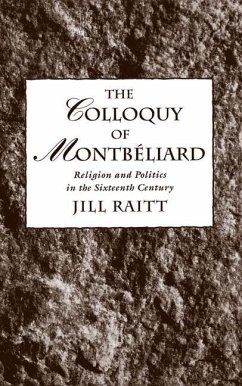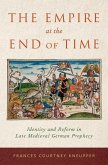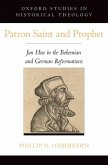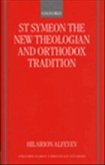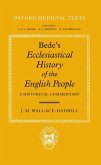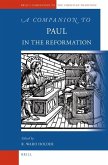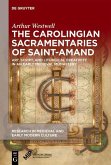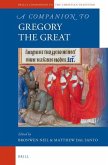Focusing on the Colloquy of Montbeliard, a theological debate waged in 1586 between Lutherans and Calvinists, Raitt explores the complex array of shifting political alliances and tensions between various religious factions that characterized the Holy Roman Empire and its relations with France after the Peace of Augsburg. She uses the Colloquy in particular to show how doctrinal religious debates often were the result of high-level political intrigue - in this case, an effort to unite the Protestant forces of Europe against Rome and the papal allies. When the Wars of Religion broke out in France, both sides courted allies. Often these alliances involved confessional tests - usually concerning the Eucharist. Raitt shows that while such complex theological questions would seem to belong in seminaries, in many cases, they took place at the request of people and princes. On the outcome of these debates depended the well-being of towns and villages as well as the disposition of troops and the conduct of wars. Raitt's study of the "age of confessionalism" uncovers the background and details of the Colloquy of Montbeliard and analyzes the nature and implications of the underlying theological conflict. Unique among books on the Reformation period, it places the theological debate in the context in which it occurred: a pan-European conflict over religion. This singular study will engage scholars of the Reformation period specifically, as well as theologians, historians, and interested layreaders.
Hinweis: Dieser Artikel kann nur an eine deutsche Lieferadresse ausgeliefert werden.
Hinweis: Dieser Artikel kann nur an eine deutsche Lieferadresse ausgeliefert werden.

